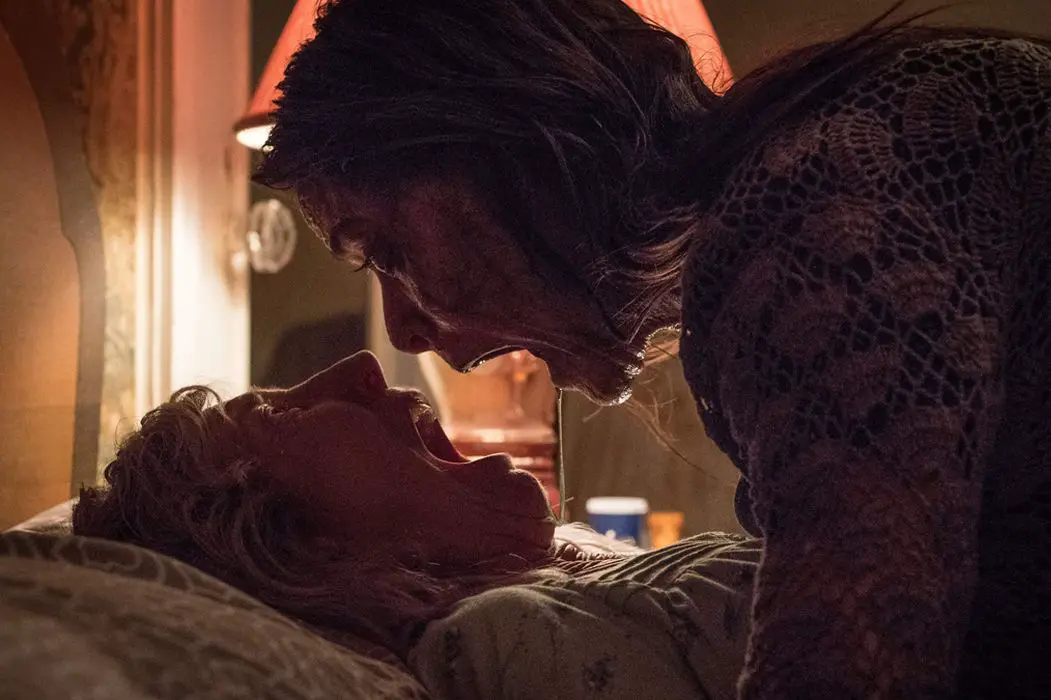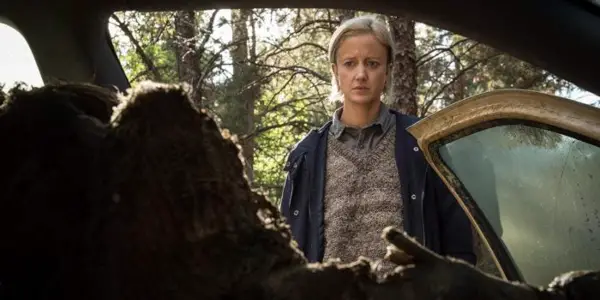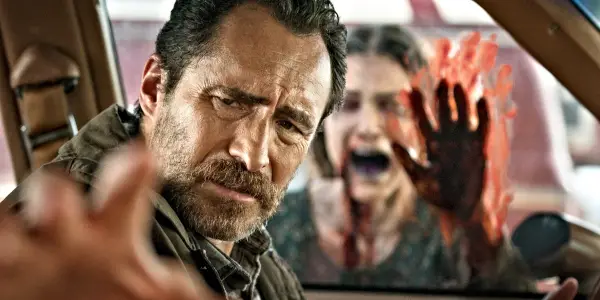THE GRUDGE: Uhhhhhhhhh…

Kevin L. Lee is an Asian-American critic, producer, screenwriter and…
The best moment in this 2020 rendition of The Grudge is when the title card appears and you see 呪怨 in large, glorious red font.
Despite its shortcomings and underwhelming qualities, this new installment displays a love and admiration for the original Japanese series, titled Ju-On and founded by Takashi Shimizu. What started as a pair of short films in 1998 quickly escalated into one of the most iconic Asian horror franchises in the world. 22 years and 15 films later, Ju-On continues (or struggles) to remain relevant in the conversation.
This is a problem that has affected not just the Grudge franchise, but also the Ring franchise – both are full of films that take the same premise and spend most of their runtimes exploring a mystery that the audience already knows the answer to. Instead of expanding on the mythology of the original idea, these films are more occupied with keeping the original idea alive.
As a result, with this second American remake, you’re mostly left with pretty much the same plot and the same premise – a curse born of a powerful rage – that delivers middling results, even with writer and director Nicolas Pesce (The Eyes of my Mother) involved. From start to finish, this film feels as if one of two things happened. Either Pesce was held back by a studio that favored jump scares or Pesce was brought in to save what was already a wobbly project.
Taking its Time with the Characters
The most common criticism you will hear about this movie is it’s slow and boring, largely because it takes its sweet time with the human characters. On one end, I admire what the screenplay was attempting to do. On another end, it really doesn’t matter because you know any human character in a Grudge movie is screwed for eternity.
That being said, I partially respect this new Grudge for wanting to be character-focused. The series has long been famous for its nonlinear narrative structure, but this is the first time the script actively tries to tie it all together like a hyperlink film. This is also the first time I remember what each character’s job and circumstance is in the story.

Jacki Weaver’s character is brought in to assess a mentally ill wife, played by Lin Shaye. John Cho plays the realtor attempting to sell the cursed house, while dealing with a difficult situation with his pregnant wife (Betty Gilpin) involving their baby. And lastly, on top of it all, Andrea Riseborough and Demián Bichir play detectives who investigate the past cases in the house. Three narratives, all bound together over time by the same curse.
All actors deliver solid performances here, making the most out of the script. From the characters to the musical score, Pesce attempts to create a grim atmosphere that looms over everyone, a sense that the curse has such a firm grip on people’s lives like a chokehold. The tone didn’t always work, but I admire the effort.
Sigh… Jump Scares…
Sadly, we’re in complete jump scare territory here, and it’s not the Sam Raimi kind. Whenever the script is not heavily occupied with exploring its human characters, it’s constantly reminding us with loud noises that we’re actually watching a horror movie. Any potential atmosphere that was established is instantly released and rendered void. As a horror movie made to scare audiences, this is the equivalent to sleepwalking.
Even the gore, which looks impressive on a technical level, is underused. They’re no different from a typical R-rated thriller. The kills aren’t creative, nor are there any spine-tingling concepts that come with the violence – this is a franchise that includes missing jaws and horrifying “childbirths.”
Americanizing Ju-On
Here’s the real bummer for me: most of Ju-On’s scariest imagery and ideas are gone. With the curse coming over to America and infecting a new family, the ghosts that remain in the house bear more resemblance to La Llorona and the children of Sinister than they do with Kayako and Toshio. The boy who meows? The mother who crawls and croaks? All that is gone in exchange for muddy-looking zombie ghosts who stand still or walk along dark hallways.

I’m all for expanding a 22-year-old franchise, but this went in a direction where I could barely recognize what I’ve loved for years. Kayako and Toshio still terrify me to this day. There are no other ghosts in horror cinema that behave like they do, which is partially why they are so memorable. There is nothing memorable about the ghosts here in The Grudge. They lack both motivation and creativity.
The Grudge: There Will Be Another One
This review might have painted the original Ju-On films as masterpieces, but that’s very much not the case. In all seriousness, only three of the fifteen films in the series are considered “good films,” in my eyes. The rest are all misfires or total disasters.
That being said, I always get excited when a new Grudge film gets announced. It’s a classic ghost story that has contributed to my taste in horror. The same goes for the Ring films. I love their ideas. I love the endless potential you could do with these ghosts and the endless ways they can haunt our everyday urban lives.
In the meantime, this Grudge is not good. I’ve seen it done worse, but I’ve also seen it done a lot better. It perfectly demonstrates that these spirits are terrifying enough to be kept alive on screen, but the writers are too afraid to write any new material. But there will be another one, and I will be there to see it. Your move, Japan.
Did you see The Grudge? What did you think of the film? Share below!
The Grudge was released in theaters in the US on January 3, 2020. For all international release dates, click here.
Does content like this matter to you?
Become a Member and support film journalism. Unlock access to all of Film Inquiry`s great articles. Join a community of like-minded readers who are passionate about cinema - get access to our private members Network, give back to independent filmmakers, and more.
Kevin L. Lee is an Asian-American critic, producer, screenwriter and director based in New York City. A champion of the creative process, Kevin has consulted, written, and produced several short films from development to principal photography to festival premiere. He has over 10 years of marketing and writing experience in film criticism and journalism, ranging from blockbusters to foreign indie films, and has developed a reputation of being “an omnivore of cinema.” He recently finished his MFA in film producing at Columbia University and is currently working in film and TV development for production companies.











